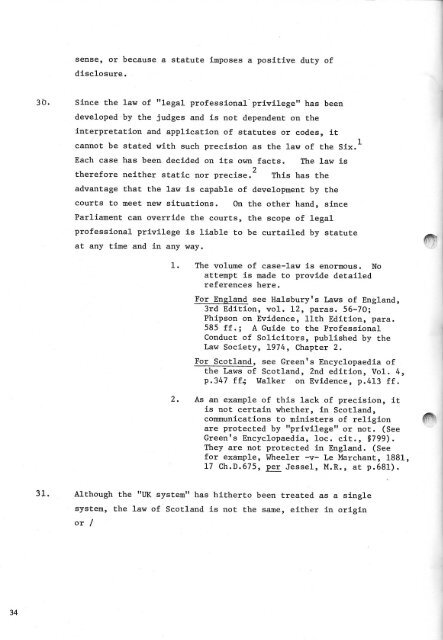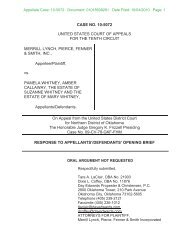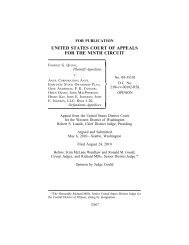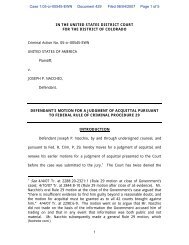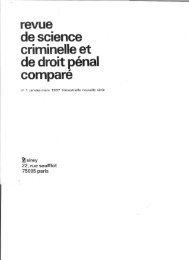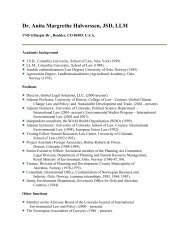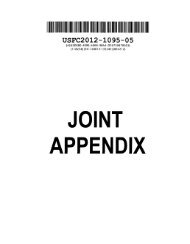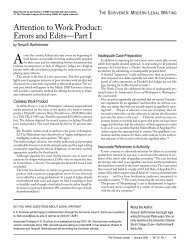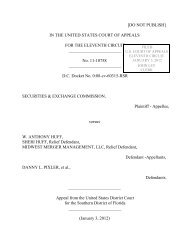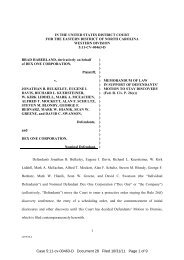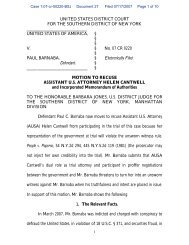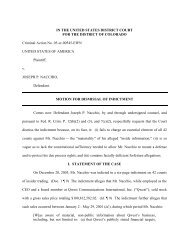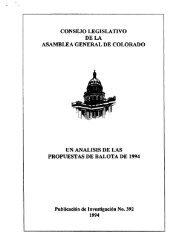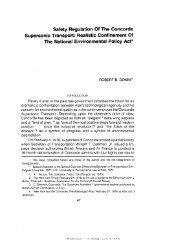The Professional Secret, Confidentiality and Legal Profession ...
The Professional Secret, Confidentiality and Legal Profession ...
The Professional Secret, Confidentiality and Legal Profession ...
You also want an ePaper? Increase the reach of your titles
YUMPU automatically turns print PDFs into web optimized ePapers that Google loves.
34<br />
sense, or because a statute imposes a positive duty of<br />
disclosure.<br />
3D. Since the law of "legal professional-privilege" has been<br />
developed by the judges <strong>and</strong> is not dependent on the<br />
interpretation <strong>and</strong> application of statutes or codes, it<br />
cannot be stated with such precision as the law of the Six. 1<br />
Each case has been decided on its own facts. <strong>The</strong> law is<br />
therefore neither static nor precise.2 This has the<br />
advantage that the law is capable of development by the<br />
courts to meet new situations. On the other h<strong>and</strong>, since<br />
Parliament can override the courts, the scope of legal<br />
professional privilege is liable to be curtailed by statute<br />
at any time <strong>and</strong> in any way.<br />
1. <strong>The</strong> volume of case-law is enormous. No<br />
attempt is made to provide detailed<br />
references here.<br />
For Engl<strong>and</strong> see Halsbury's Laws of Engl<strong>and</strong>,<br />
3rd Edition, vol. 12, paras. 56-70;<br />
Phipson on Evidence, 11th Edition, para.<br />
585 ff.; A Guide to the <strong><strong>Profession</strong>al</strong><br />
Conduct of Solicitors, published by the<br />
Law Society, 1974, Chapter 2.<br />
For Scotl<strong>and</strong>, see Green's Encyclopaedia of<br />
the Laws of Scotl<strong>and</strong>, 2nd edition, Vol. 4,<br />
p.347 ff~ Walker on Evidence, p.4l3 ff.<br />
2. As an example of this lack of precision, it<br />
is not certain whether, in Scotl<strong>and</strong>,<br />
communications to ministers of religion<br />
are protected by "privilege" or not. (See<br />
Green's Encyclopaedia, loco cit., §799).<br />
<strong>The</strong>y are not protected in Engl<strong>and</strong>. (See<br />
for example, Wheeler -v- Le Marchant, 1881,<br />
17 Ch.D.675, per Jessel, M.R., at p.68l).<br />
31. Although the "UK system" has hitherto been treated as a single<br />
system, the law of Scotl<strong>and</strong> is not the same, either in origin<br />
or /


